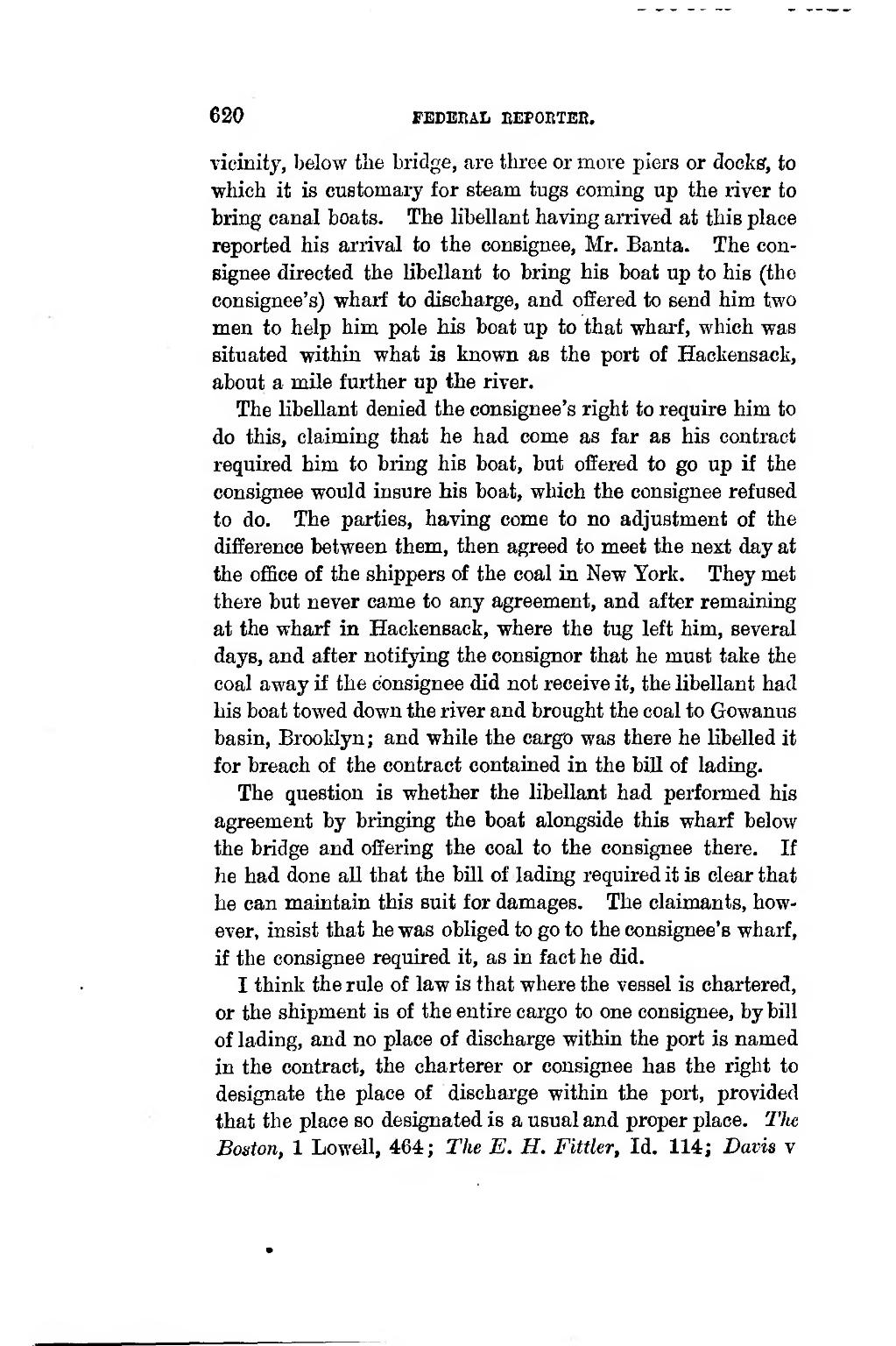620 FEDEEAL EEPOBTER. �vicinity, below tîie bridge, are three or more piers or doclcef, to which it is customary for steam tugs coining up the river to bring canal beats. The libellant having arrived at this place reported his arrivai to the consignee, Mr, Banta. The con- signee directed the libellant to bring his boat up to his (tho consignee's) wharf to discharge, and offered to send him two men to help him pôle his boat up to that wharf, which was situated within what is known as the port of Hackensack, about a mile further up the river. �The libellant denied the consignee's right to require him to do this, claiming that he had come as far as his contract required him to bring his boat, but offered to go up if the consignee would insure his boat, which the consignee refused to do. The parties, having come to no adjustment of the difference between them, then agreed to meet the next day at the office of the shippers of the coal in New York. They met there but never came to any agreement, and after remaining at the wharf in Hackensack, where the tug left him, several days, and after notifying the consigner that he must take the coal away if the consignee did not receive it, the libellant had his boat towed down the river and brought the coal to Gowanus basin, Brooklyn; and while the cargo was there he libelled it for breach of the contract contained in the bill of lading. �The question is whether the libellant had performed his agreement by bringing the boat alongside this wharf below the bridge and offering the coal to the consignee there. If he had done ail that the bill of lading required itis clearthat he can maintain this suit for damages. The claimants, how- ever, insist that he was obliged to go to the consignee's wharf, if the consignee required it, as in fact he did. �I think the rule of law is that where the vessel is chartered, or the shipment is of the entire cargo to one consignee, by bill of lading, and no place of discharge within the port is named in the contract, the charterer or consignee bas the right to designate the place of discharge within the port, provided that the place so designated is a usual and proper place. The Boston, 1 Lowell, 464; The E. H. Fittler, Id. 114; Davis v ��� �
